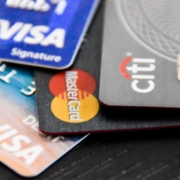99% of the time I do not carry cash (dollar bills or coins) with me when I leave my house. I rely exclusively on Chase Sapphire credit card for purchases for a couple very key reasons.
The biggest benefit of only using plastic is earning cash-back on expenditures which pay for the card’s $100 yearly fee a couple times over. Of course, the other benefit to not using cash is the convenience of not dealing with spare change or fear of loosing it. In fact, in the past year, I have only used cash for three things: tipping, paying campground fees, and buying tacos from my favorite food cart in Long Beach.
My spending habits work for me, but how do they compare to the rest of the country and the rest of the world? Accordingly to The New York Times, “there are few corners of the world where electronic transactions are not growing faster than cash.” In fact, estimates predict that electronic payments will grow about 10.9% a year between 2015 and 2020 worldwide – with some Scandinavian countries already on their way toward being 100% cashless.
Even though America has held onto traditional cash-payment more than other wealthy countries, recent studies show only 41% of Americans carry cash with them regularly.
Major banks and government institutions around the world love that paying with cash is becoming a medium of our past. Credit, debit, and mobile spending is significantly easier to track for financial and marketing reasons and petty criminals have less incentive to steal from innocent bystanders. But, as with all economical shifts, there are some consequences.
Credit card debt topped $1 trillion in 2017 for first time ever, leading to questions of whether consumers will be responsible in paying money back. Some believe that a move away from cash leads to frivolous, harmful spending.
Curious to get perspectives on this topic. Do you prefer cash, credit/debit, or other forms of currency (talkin’ about crypto-currency!)? Do you think America should actively move towards being a cashless society like other counties in the world? Let us know via LinkedIn.
–Lee Sumner, Sr. Research Manager

